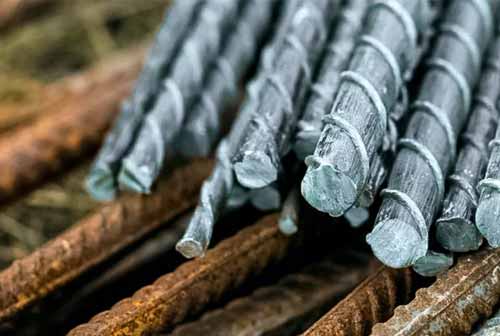Fiberglass rebar, a composite material made from glass fibers and a polymer matrix, has gained popularity in recent years due to its numerous benefits. Here are some of the pros of using fiberglass rebar:
- Higher tensile strength: Fiberglass rebar has a higher tensile strength than traditional steel rebar, making it more resistant to cracking and deformation under stress.
- Corrosion resistance: Fiberglass rebar is resistant to corrosion, which means it can withstand harsh environments and last longer than steel rebar in marine or saltwater applications.
- Lightweight: Fiberglass rebar is significantly lighter than steel rebar, making it easier to transport and install, especially in tight spaces.
- Improved durability: Fiberglass rebar has improved durability compared to steel rebar, with a longer lifespan and reduced maintenance costs.
- Aesthetic appeal: Fiberglass rebar has a smooth, shiny finish that can enhance the appearance of concrete structures.
Cons of Fiberglass Rebar
While fiberglass rebar offers many advantages, there are also some potential drawbacks to consider:
Higher cost: Fiberglass rebar is generally more expensive than steel rebar, which can make it less accessible to some projects.
Limited availability: Fiberglass rebar may not be widely available in all regions, which can make it difficult to source and transport.
Installation challenges: Fiberglass rebar can be more challenging to install than steel rebar, as it requires specialized equipment and techniques.
Inconsistent quality: The quality of fiberglass rebar can vary depending on the manufacturer and production process, which can affect its performance and longevity.
Limited recyclability: Fiberglass rebar is not as recyclable as steel rebar, which can make it less sustainable in the long term.

Applications of Fiberglass Rebar
Fiberglass rebar can be used in a variety of applications, including:
Concrete structures: Fiberglass rebar can be used to reinforce concrete structures such as bridges, parking garages, and high-rise buildings.
Marine environments: Fiberglass rebar is well-suited for use in marine environments, such as docks, piers, and boat ramps, due to its corrosion resistance.
Infrastructure projects: Fiberglass rebar can be used in infrastructure projects such as roads, airports, and water treatment plants.
Building renovations: Fiberglass rebar can be used in building renovations, as it can be easily installed in tight spaces and does not require the use of heavy machinery.
Decorative applications: Fiberglass rebar can be used for decorative purposes, such as in architectural features or landscape design.
Conclusion
Fiberglass rebar is a versatile and durable material that offers many advantages over traditional steel rebar. While it may have some drawbacks, its benefits make it an attractive option for a wide range of applications. By understanding the pros and cons of fiberglass rebar, architects, engineers, and contractors can make informed decisions about its use in their projects.